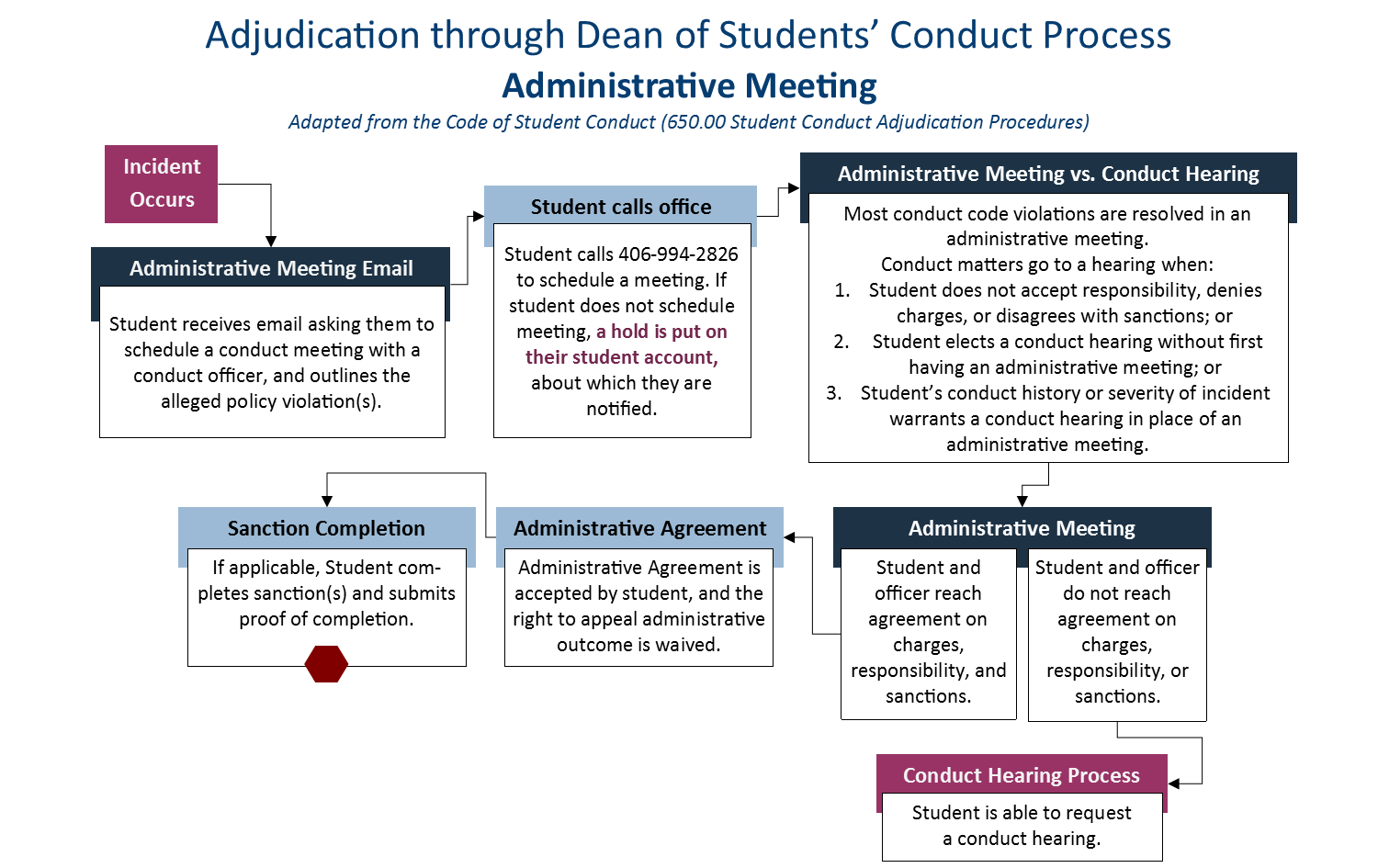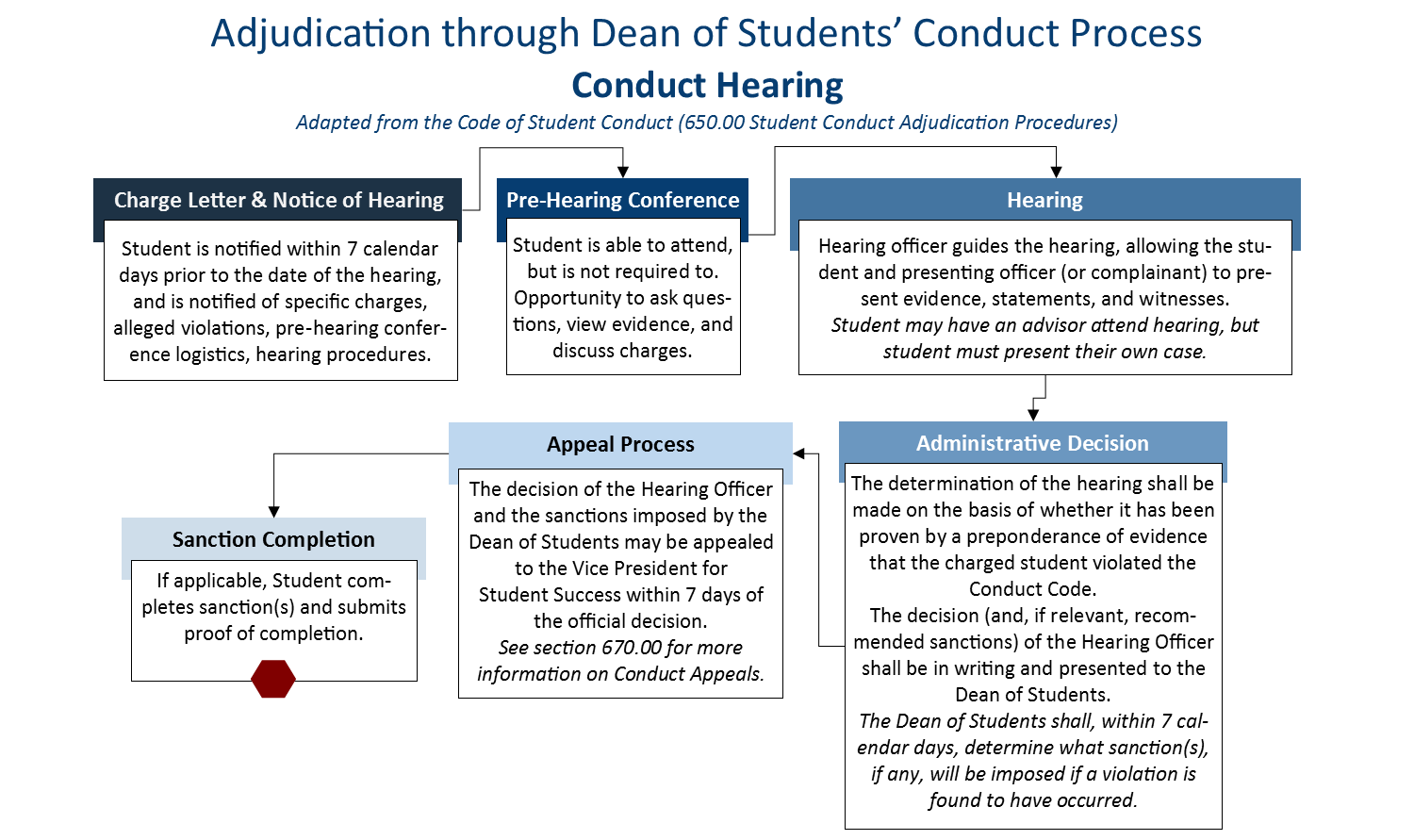The Student Conduct Process
What happens now that I've been involved in an incident?
Administrative Meeting: The vast majority of conduct cases at MSU are resolved through administrative meetings. These are one-on-one conversations between the student and a Conduct Officer (generally a staff member in the Office of the Dean of Students, Residence Life, or Athletics). During an administrative meeting, the Conduct Officer will provide the student an opportunity to share their account of the incident, view incident reports and/or other written documentation, ask follow-up questions, and discuss potential outcomes (sanctions) if the student is deemed responsible for violating the Code of Student Conduct. The primary focus of these meetings is to determine what happened and if a violation took place, assist the student in understanding the impact of their behavior, and provide a space for the student to begin reflecting on how to learn from the incident. If it is determined that a violation of the code occurred and that the student is responsible, most administrative meetings conclude with an administrative agreement in which the student agrees to take responsibility for their involvement in the incident and to complete a sanction or set of sanctions that will help them learn from the incident.
Conduct Hearing: The conduct process also includes a more formal route for resolving conduct cases called a conduct hearing. A conduct hearing is utilized if an administrative agreement cannot be reached, if the severity of the incident or the student's conduct history warrants a more in depth adjudication process, or if the student chooses to participate in a hearing instead of first meeting with a Conduct Officer. The procedures and guidelines for conduct hearings are detailed in the Code of Student Conduct.
Cases adjudicated through administrative meetings proceed as follows:
(Please note: If your case is assigned to Residence Life, an appointment may be scheduled for you. In such cases, the invitation to administrative meeting notice- as outlined below- will include a date and time for your meeting. If you fail to schedule a meeting or repeatedly skip scheduled meetings, your case may automatically move to a hearing and may proceed without you being present.)
Cases adjudicated through conduct hearings proceed as follows:
Information for:



